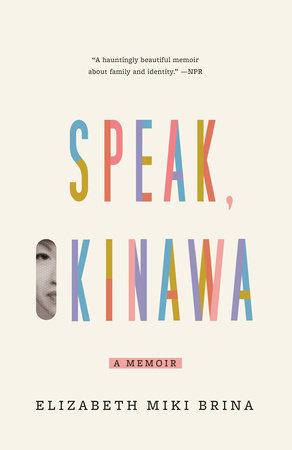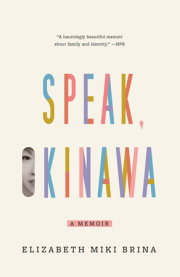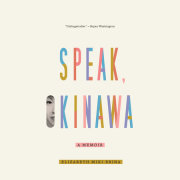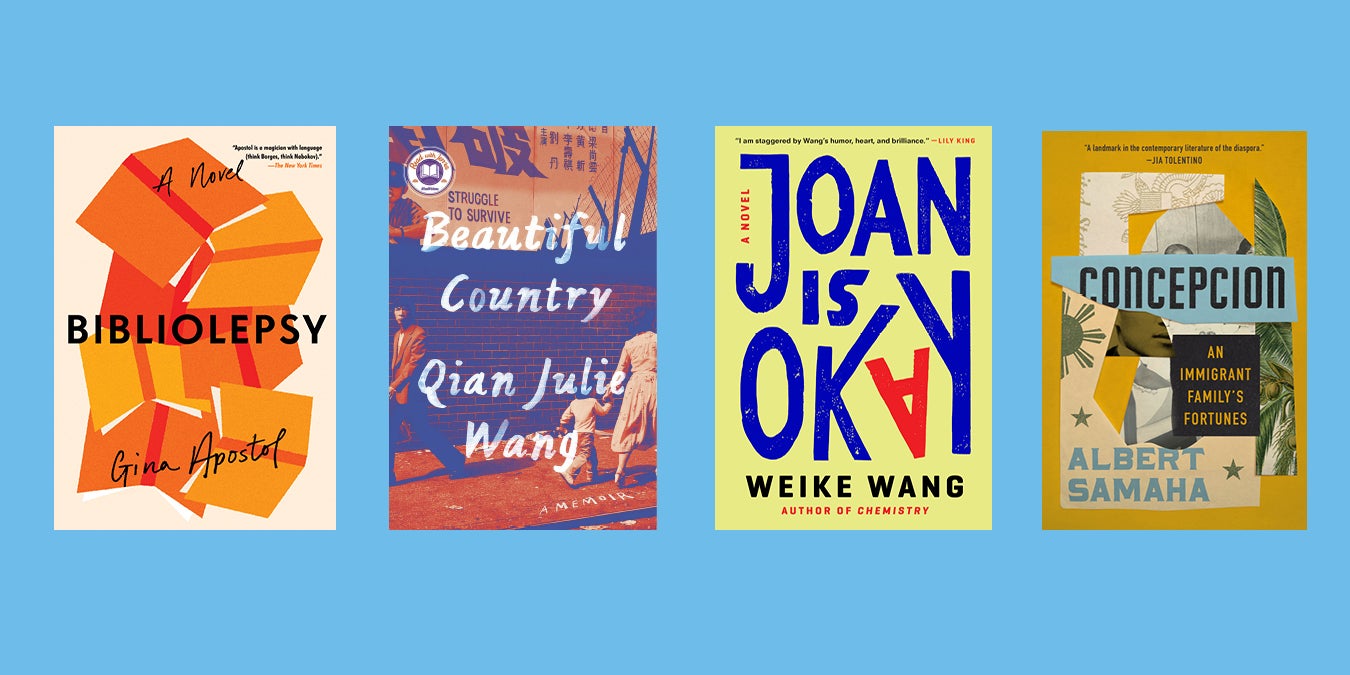I
WORSE THAN THE DOG
I asked my dad why all the great stories were sad ones. “Most good stories are mysteries,” he said. “The author is like a detective trying to get to the bottom of some truth, and happiness is a mystery that can come apart in your hands when you try to unravel it. Sadness, on the other hand, is infinitely more resilient. Scrutiny only adds to its depths and weight.”
—Bliss Broyard, “My Father’s Daughter”
My first memory: a dog bites me, on the arm, not hard, but just enough to jar me into consciousness. His name is Shiro, which means “white” or “castle” or “generation” in Japanese, depending on how it is written. Shiro has long white hair, blue eyes, and a grayish-pink nose. I am three years old and he is just above my height, but I can still look him in the eyes. I believe we understand each other, our arrangement. I believe, at age three, I’ve earned his subservience. He carries himself proudly. Majestic, like a horse.
So one day, when no one else is around, in the backyard, beside the cinderblock fence, as he lowers his head to drink from a shiny porcelain bowl of water, I try to mount him. He growls and bites me. He doesn’t frighten me. He embarrasses me, shames me. And as a small child, an only child, accustomed to endless doting, I wouldn’t tolerate these strange emotions. I cry and run to my mother. I don’t tell her why I’m crying. I’m afraid that if I tell her she’ll scold me worse than the dog did.
Shiro is not to be ridden like a horse.
Shiro was my obaasan’s dog. Obaa, my grandmother, my mother’s mother, found Shiro when he was still a puppy, eyes closed, curled up into a ball, quivering on a pile of garbage.
Often at night, Obaa pushed a cart through the streets of Kadena, a town located on the island of Okinawa, where my mother was born and raised, where I lived for six months when I was three years old. Often at night, when the air thinned and cooled, when the sounds of jets, helicopters, and gunfire coming from the nearby military bases quieted, Obaa pushed a cart through the streets and rummaged through trash heaps, searching for cans and bottles to sell, scraps of wood and metal to reuse. She lived in a house with a rusted tin roof, a rusted tin gate, a floor raised from the mud by cinder blocks, with a single room for cooking, eating, drinking, sleeping, and playing cards, a backyard for bathing and growing sweet potatoes, which she ate for every meal. She lived almost all her life in this house, the house where my mother grew up, the house my grandfather built after their previous house was destroyed during the battle.
The Battle of Okinawa. That is how most of us have heard of Okinawa. But as a battle fought and won, and quickly disregarded. Not as a battle on which our entire contemporary history depends, from which we are still recovering.
It began in April of 1945 and lasted eighty-two days. In Japanese, the battle is referred to as “tetsu no ame.” In English, the phrase means “rain of steel.” The Okinawans simply refer to it as Okinawa no Sensho, “Okinawan War.” Although a conquered nation for many centuries—first as a tributary of China, then as a colony of Japan—Okinawa had never known such carnage. For eighty-two days, thousands of planes dropped hundreds of thousands of bombs on the island, crushing and burning countless creatures, plants, houses, and buildings. For eighty-two days, hundreds of thousands of troops invaded the island, wielding tanks and guns, throwing grenades, and shooting into hiding places. One hundred forty thousand Okinawans, a third of the population, were killed. That does not account for all those who died of injury, illness, starvation after the battle. That does not account for all those who were forced to commit suicide. Of those killed, some were conscripted soldiers called Boeitai, boys as young as twelve, ordered to fight in the front lines. Some were nurses or members of relief teams called Giyutai, girls as young as fourteen, ordered to cook and tend to the wounded. The rest were civilians. One hundred twenty thousand civilians. Who died in a war they didn’t choose, sacrificed to protect Japan, the precious mainland. Many Okinawans believe that those who died had died in vain. Or, rather, what they refer to as “a dog’s death,” inujini.
When news spread that Okinawa would soon be attacked, Obaa was living by herself with her four children, my mother’s older brother and older three sisters. My grandfather, conscripted four years earlier, was somewhere in Korea, being held prisoner. When the sirens blared, days before the troops landed, before the ships could be seen from shore, Obaa and her four children—her son, age four, and her three daughters, ages three, five, and seven—grabbed sacks of potatoes they had been gathering and storing for months. They hid in caves while the ground shook with each explosion, while their island, their home, crumbled and turned to ash. They fled from cave to cave, while their sacks emptied, while their clothes loosened and unraveled from their shrinking bodies. For two years after the war, they wandered from camp to camp, slept in tents or under tarps. They bathed in the ocean. They ate what they could scavenge. They collected rain and drew from low muddy wells for drinking. When my grandfather returned from Korea, he was a different person. He returned, but he was gone.
Somehow Obaa kept herself and her four children alive and unharmed through one of the most horrific battles in history. A story I wish she could have told me.
Yet these memories are impossible to forget, regardless of whether we actually lived through them. I believe they stay in our bodies. As sickness, as addiction, as poor posture or a tendency toward apology, as a deepened capacity for sadness or anger. As determination to survive, a relentless tempered optimism. I believe they are inherited, passed on to us like brown eyes or the shape of a nose.
I had not learned this history, my mother’s history, my history, until I was thirty-four years old. Which is to say that I grew up not knowing my mother or myself.
Three years after the war, my mother was born. She was born into poverty and chaos. She was born into a family, an entire people, stunned by violence and grief. When my mother was born, Okinawa was still considered an “enemy territory.” This meant that the occupying U.S. military was under no obligation to restore the battered landscape, and Okinawa was still a vast ruin of decay and rubble. This meant that the occupying U.S. military guarded and patrolled the wreckage of an island, and Okinawans relied on bare subsistence rations of bread and milk, cans of red chili, popcorn, and candy. Some of the troops gave the prettiest girls bright new clothes to wear and called them “honeys.” Some of the troops broke into homes, robbed and raped Okinawans inside homes, because there were no laws against it, no laws at all.
In 1952, three years after my mother was born, around the age she would have formed her first memory, Japan officially relinquished rule of Okinawa to the United States. My mother witnessed the U.S. military devouring the island, constructing immense complexes of bases. She witnessed forests and fields, wetlands and beaches becoming concrete. She witnessed farmers and fishermen, carpenters and potters, cooks and shopkeepers becoming mere labor. Her brothers were hired to help build the bases. Her sisters were hired to serve food in the cafeterias. Obaa cleaned barracks. My grandfather also cleaned barracks, but mostly he just stayed in bed, too sick with grief, humiliation, and alcoholism to do much of anything else.
For many years after the war, in order to supplement her income, Obaa cooked breakfast and lunch for a few of her neighbors; a couple of them were orphans, older than her youngest children, old enough to work, but still needing someone to care for them. She cooked on a portable gas stove while they drank tea and played cards in the same room. They paid her one dollar to sit on her floor and eat food she prepared. Not much, just potato and broth.
Not long after her own children moved out and moved away, after my grandfather gambled and drank himself to death, Obaa found Shiro on a pile of garbage and brought him to her home. She held him like a baby and fed him with a bottle. Then he grew older and bigger, and they would sit together at the same table, which was already low to the floor, perfect for a dog, and share from the same bowl. One piece of potato for her, one piece for him. She would slurp some broth and give the rest to him. Back and forth. For every meal.
Shiro trotted beside her as Obaa pushed a cart through the streets.
Shiro was not to be ridden like a horse.
My first memory of Shiro biting me is all I remember of the time I lived in Okinawa. There are many photographs of my aunts and uncles holding me and smiling, my cousins holding me and smiling, Obaa carrying me on her back and smiling. We are not just posing for photographs. We are smiling because we are happy. I am a small child and I don’t know what sadness is yet, and therefore I make everyone happy.
There is a photograph of me at a beach, lying on my stomach on the sand, wearing a red-and-white polka-dotted swimsuit and sunglasses much too large for my face. I am laughing, probably because the person behind the camera is laughing.
There is a photograph of me in the park, standing on a pair of giant bronze statue boots, each boot bigger than my whole body, wearing braids and bow-shaped barrettes in my hair, arms crossed and brow furrowed, trying to look tough, probably because the person behind the camera is showing me how to look tough and I am mimicking her. We are having fun, pretending and playing together, because I am happy and everyone loves to play with me.
But I do not remember any of these moments. They are just photographs my mother had taken and framed, and hung on walls or put on shelves around the house. They do not belong to my life. They belong to hers.
What I do remember is walking through Newark Airport. I am walking with my mother, staying very close to her, holding her hand. A man walks beside us. He smiles a lot and wants to hold my hand, too, but I won’t let him. I won’t let him because I don’t know him. I don’t remember him because my first memory is of Shiro biting me. My mother tells me the man is my father. She tells me that he stayed behind, here, where we are now, in the United States. She tells me that he was traveling, looking for a better job and a better place for us to live. That is why we had to live with my aunt on Okinawa for six months. That is why we have returned. Because the man is my father and her husband. We belong with him. She says “Otosan . . . Otosan . . . Anata no otosan.” Father . . . Father . . . Your father. She tells me in Japanese, because back then I could understand and speak Japanese. I hold my mother’s hand tighter, hiding from him behind her.
And for a long time, that is the closest I ever felt to my mother. When I was still in her world.
What my mother and I share now is an understanding that precedes words. It is an understanding that comes from being the same body, being fed, bathed, clothed, held in her arms every day, loved every day, then becoming separate, growing apart, then remembering how much that hurt, remembering and being grateful for the distance we traversed, the distance we were able to recover. It is an understanding that comes from forgiveness.
My mother and I communicate through layered small-talk, subtexted chitchat, a shorthand that took years and years to develop, and satisfies our desire to be close.
But will that ever compensate for the years and years of silence, for the time we missed, the time I squandered?
Copyright © 2021 by Elizabeth Miki Brina. All rights reserved. No part of this excerpt may be reproduced or reprinted without permission in writing from the publisher.





